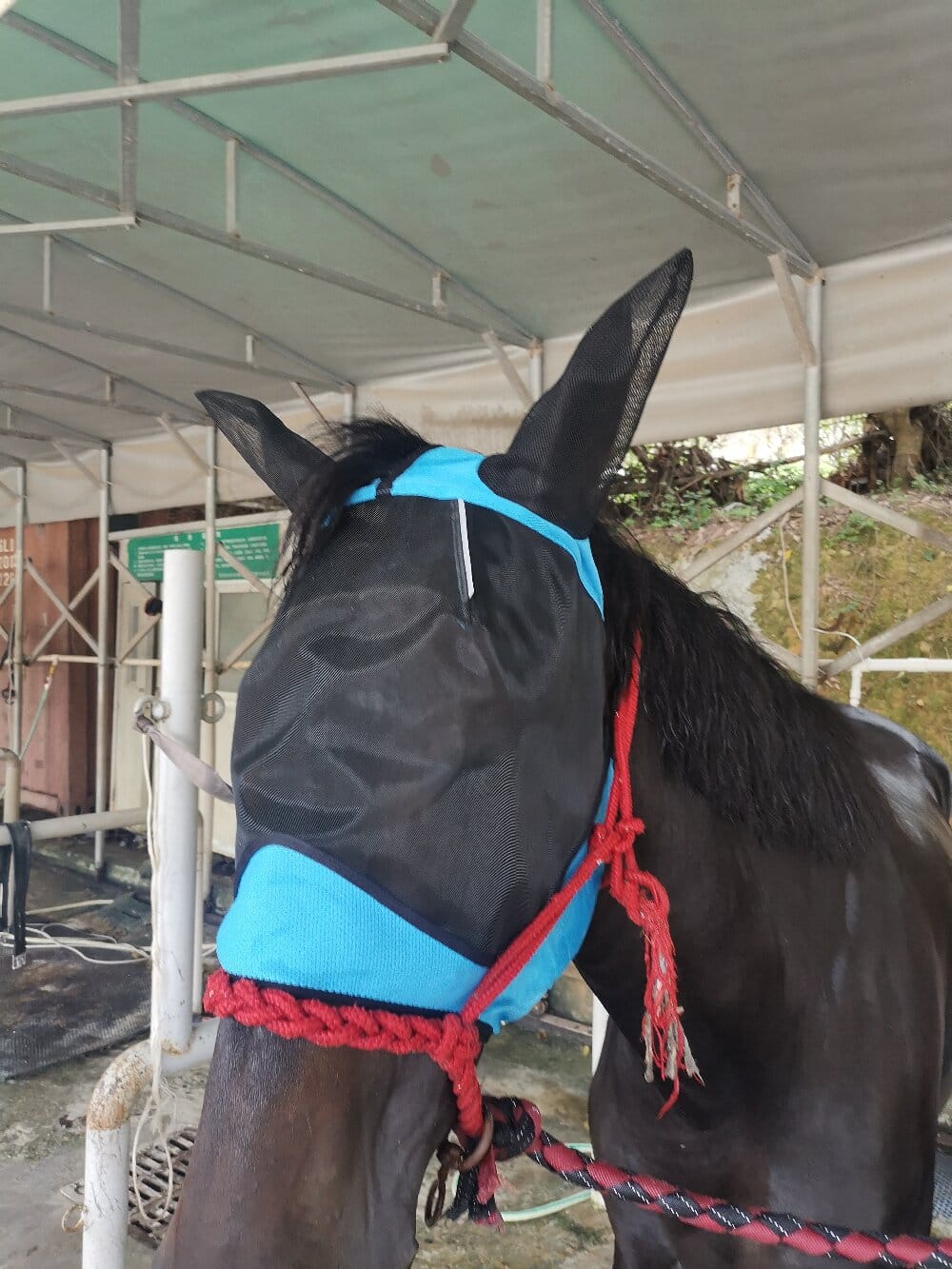A horse fly mask is an essential piece of equine gear designed to protect horses from irritating and potentially harmful insects. These masks shield the eyes, ears, and face from flies, mosquitoes, and other pests, ensuring comfort and reducing stress for the animal. Whether used for pasture turnout, training, or competition, a well-fitted fly mask can significantly improve a horse’s quality of life. In this case study, we explore the benefits, types, and real-world applications of fly masks from multiple perspectives.
Case Study: How a Fly Mask Improved a Horse’s Well-being
At a busy equestrian center in Kentucky, a thoroughbred named Thunder exhibited signs of agitation during summer months. Constant swatting at flies led to minor eye infections and distracted behavior during training. After introducing a breathable, UV-resistant horse fly mask, Thunder’s condition improved dramatically. The mask reduced fly irritation, prevented eye infections, and allowed him to focus better during sessions. This real-world example highlights the practical benefits of using protective gear for equines.
Types of Horse Fly Masks and Their Features
Not all fly masks are created equal. Depending on the horse’s needs, owners can choose from several designs:
- Standard Fly Masks: Cover the eyes and ears, offering basic protection against insects.
- Full-Face Masks: Extend to the muzzle, guarding against flies and sunburn.
- UV-Protective Masks: Shield sensitive skin from harmful sun rays while keeping pests away.
- Earless Designs: Ideal for horses that dislike ear coverage but still need eye protection.
Each type serves a unique purpose, and selecting the right one depends on climate, horse temperament, and activity level.
The Science Behind Fly Mask Effectiveness
Research shows that flies are not just a nuisance—they can transmit diseases like conjunctivitis and cause allergic reactions. A horse fly mask acts as a physical barrier, preventing direct contact between pests and the horse’s sensitive areas. Studies from veterinary journals indicate that horses wearing fly masks experience fewer infections and exhibit calmer behavior in fly-heavy environments.
Owner and Trainer Perspectives on Fly Mask Usage
From an owner’s standpoint, investing in a high-quality fly mask means fewer vet bills and a happier horse. Trainers, on the other hand, appreciate how these masks improve focus during lessons or competitions. One dressage trainer noted, “Horses distracted by flies struggle with precision. A good fly mask eliminates that distraction, leading to better performance.”
Common Mistakes When Choosing a Fly Mask
While fly masks are beneficial, improper selection can lead to issues such as:
- Poor fit causing rubbing or discomfort.
- Non-breathable materials leading to overheating.
- Inadequate UV protection in sunny climates.
Measuring the horse’s head and selecting a mask with adjustable straps can prevent these problems.
Conclusion: Why Every Horse Owner Should Consider a Fly Mask
A horse fly mask is more than just an accessory—it’s a vital tool for maintaining equine health and performance. From preventing infections to enhancing focus, the benefits are clear. By understanding the different types, scientific backing, and practical experiences of owners and trainers, horse enthusiasts can make informed decisions for their animals. Whether for a competitive sport horse or a leisurely pasture companion, a well-chosen fly mask ensures comfort and protection all season long.

